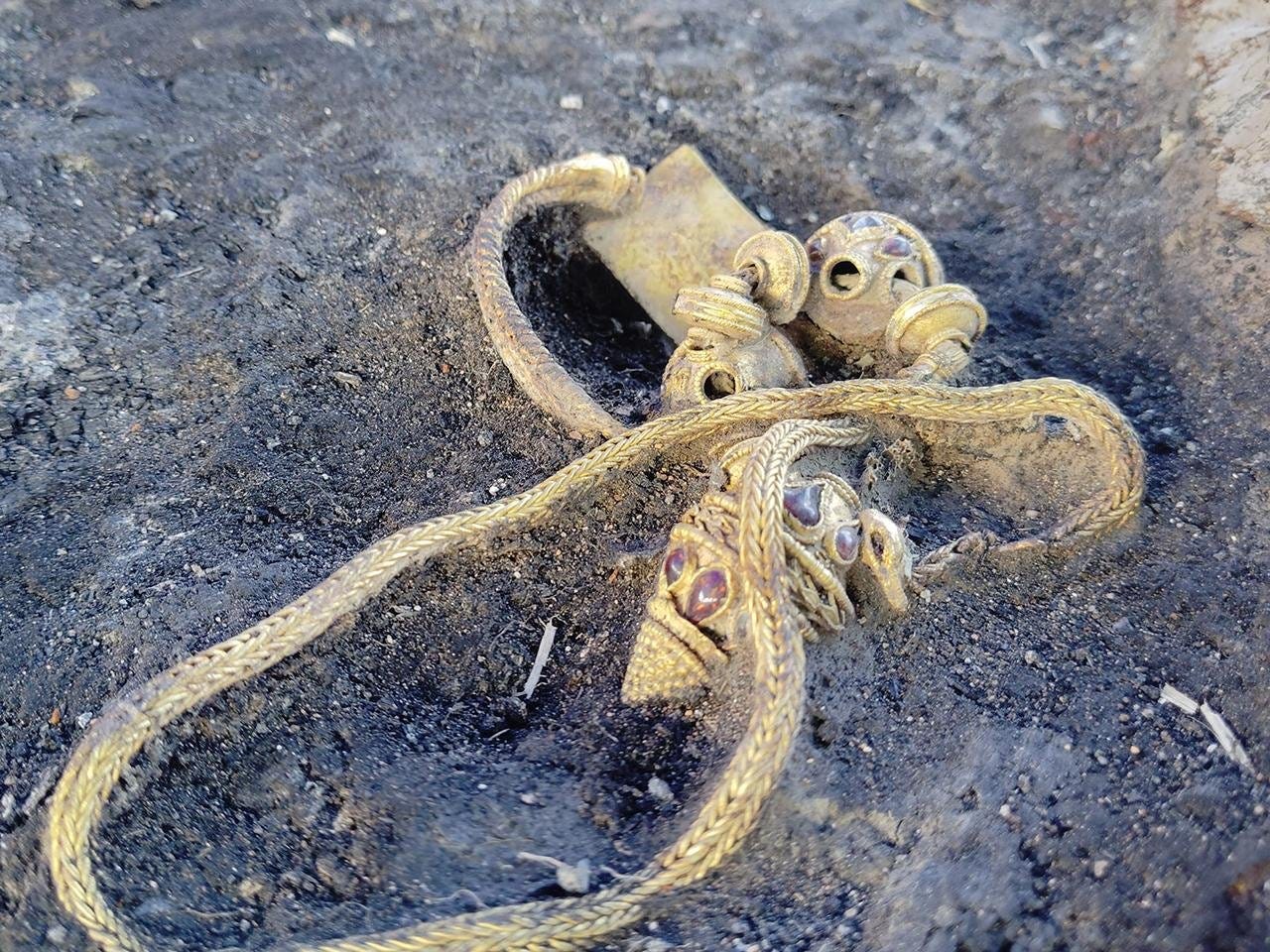Archaeologists discover unique gold artifacts found in a Thracian tomb of a warrior
Latest News
Reported by Archaeology News Online Magazine:
Archaeologists in Bulgaria, led by Daniela Agre from the National Archaeological Institute with Museum at the Bulgarian Academy of Sciences, have unearthed a Thracian warrior‘s tomb filled with unique artifacts dating back to the early 1st century CE in the village of Kapitan Petko Voyvoda.
The tomb, believed to belong to a Thracian aristocrat who served in the Roman military, contained an impressive array of grave goods. Among the most notable finds were several gold items, including a necklace, a diadem, a ring, and a knife adorned with gold elements and semi-precious stones. The knife is particularly unique, with a handle encrusted with precious stones and a gold band intricately depicting hunting dogs, a design that archaeologists have not seen in Thrace before.
In addition to the jewelry, the tomb also held numerous weapons such as swords, spears, a decorative knife, and a rare plaited breastplate, which was uncommon during the Roman period. The warrior’s full battle gear was laid to rest with him, signifying his status as a well-equipped soldier. Adjacent to the burial site, the skeletal remains of a horse were discovered, further indicating that the warrior was a mounted horseman, a prominent feature in Thracian culture.
The Thracians were an Indo-European people who inhabited areas that now include Bulgaria, Romania, northern Greece, and parts of Turkey. Emerging during the early Bronze Age, they developed a distinct warrior culture that left a lasting impact on the military history of the Balkans and surrounding regions. Known for their skill in light infantry, particularly as peltasts, Thracian soldiers were recognized for their distinctive crescent-shaped pelta shields made of wicker covered in goat or sheepskin. These warriors played crucial roles in the armies of neighboring civilizations such as the Greeks, Persians, and Romans.
Read more here.



